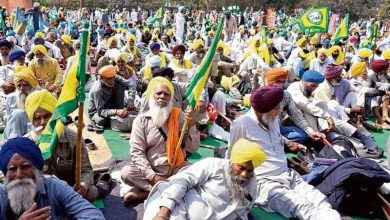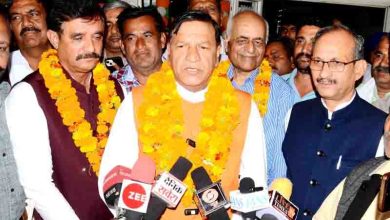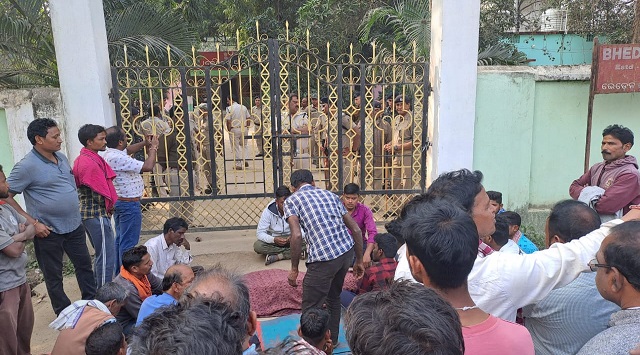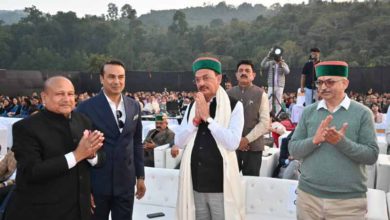Punjab: Rivals raise Haryana IGP’s death, a blow to BJP’s Dalit outreach
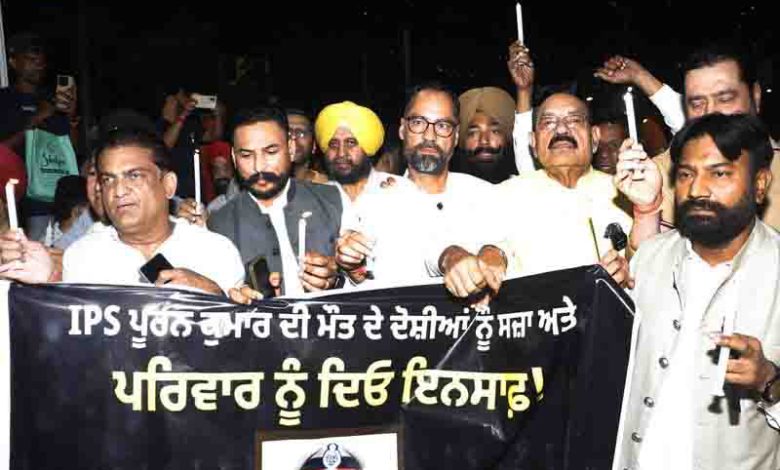
Jalandhar: The socio-political tremors of the suicide of Haryana cadre IPS officer Y. Puran Kumar are being felt in Punjab, which has the largest Dalit population in the country. The incident is being described as a case of “institutionalized caste-based discrimination,” which could have political implications in Punjab, where elections are due in just 15 months. The ruling Aam Aadmi Party (AAP) in Punjab has immediately seized the issue and the shoe attack on Chief Justice of India BR Gavai to target the BJP in power at the Centre and in Haryana. Dalit leaders of the Congress, led by former Chief Minister Charanjit Singh Channi, have also supported the officer’s family. In addition to holding candlelight marches across the state on Sunday, AAP has filed 100 FIRs in connection with the shoe-throwing incident at the Chief Justice.
The party, led by Chief Minister Bhagwant Mann and Finance Minister Harpal Cheema, has claimed never to engage in caste-based politics and blames the BJP for atrocities against Dalits. On the other hand, the political implications for the BJP are serious, especially at a time when it is trying to gain political foothold in Punjab by wooing the predominantly Dalit electorate. Party leaders are reportedly in contact not only with major deras (sects) where Dalits pay their respects but have also attempted to woo them with various centrally sponsored schemes. At this point, the longer the issue of the deceased IPS officer lingers, the more the BJP’s political image in the state will weaken. Understanding this, Paramjit Singh Kainth, Punjab State Vice President of the BJP Scheduled Caste Morcha, told The Tribune that whoever is responsible for the atrocities on the late IPS officer should not only be removed from his post but also be booked by the Chandigarh Police under the Scheduled Castes and Scheduled Tribes (Prevention of Atrocities) Act.
Eminent sociologist and President of the Institute of Development and Communication, Pramod Kumar, said that while the BJP must recover from this political setback, the Congress is trying to capitalize on this “political opportunity.” Kumar said, “The AAP is also trying to portray itself as a party standing with Dalits by filing 100 FIRs, while this is also an opportunity for the Shiromani Akali Dal to showcase its pro-Dalit image. Dalit voters in Punjab are influenced by both Sikhism, which preaches equality, and the Arya Samaj, which opposes the caste system, and have never limited their political support to any one party.” He said, “But this incident has exposed the institutional discrimination in governance, where even the Chief Minister’s Chief Principal Secretary could not help the Dalit officer. It has created a narrative of Dalit marginalization, which could unite the Dalit community. This has its own political consequences, whether good or bad, for each party.” Dr. Ronki Ram, an academic who has worked on Dalit consciousness and socio-political dynamics in Punjab, said that while the issue may resonate with community members at an individual level, politics has its own dynamics. “It remains to be seen what the outcome will be, especially when Dalits vote for different political parties rather than en masse,” he said.

